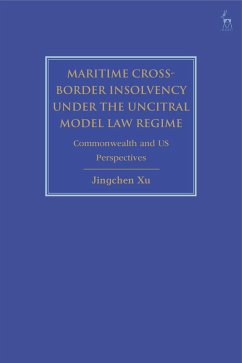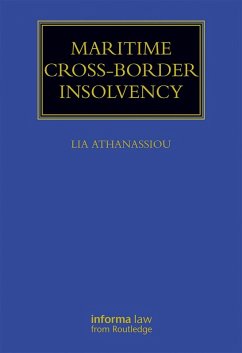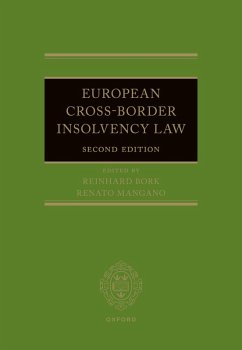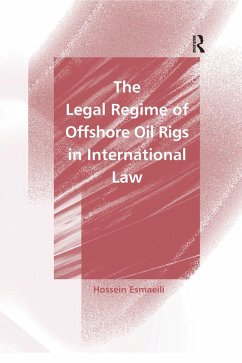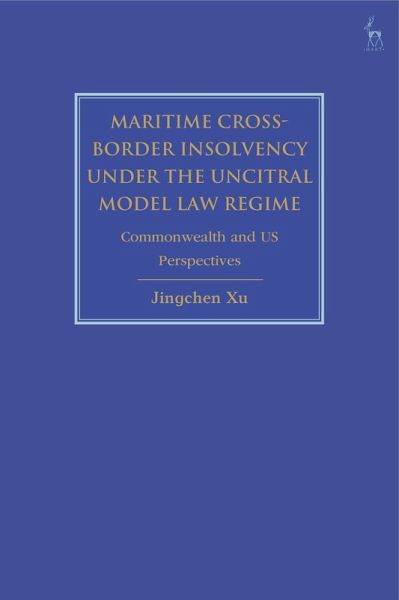
Maritime Cross-Border Insolvency under the UNCITRAL Model Law Regime (eBook, ePUB)
Commonwealth and US Perspectives

PAYBACK Punkte
17 °P sammeln!
This book covers the pressing issues of cross-border cases involving admiralty and bankruptcy law. For example, what should happen when a shipowner files an insolvency proceeding in one country, while at the same time facing an in rem action against its vessel in another country? Should the in rem action arising in one country be stayed or dismissed because of the existence of insolvency proceedings in another country? The book discusses the relevant issues regarding the treatment of maritime creditors throughout insolvency proceedings, the determination of the 'centre of main interest' of an ...
This book covers the pressing issues of cross-border cases involving admiralty and bankruptcy law. For example, what should happen when a shipowner files an insolvency proceeding in one country, while at the same time facing an in rem action against its vessel in another country? Should the in rem action arising in one country be stayed or dismissed because of the existence of insolvency proceedings in another country? The book discusses the relevant issues regarding the treatment of maritime creditors throughout insolvency proceedings, the determination of the 'centre of main interest' of an offshore shipping company, and the scope of a debtor's assets. The author uses a comparative law analysis, selecting four leading shipping countries - Australia, the UK, the US, and Singapore - and examines their approaches to the above three problems when applying the UNCITRAL Model Law regime. The book also proposes a solution to help eliminate the ambiguity arising from maritime cross-border insolvency cases under the UNCITRAL Model Law regime, with a view to enhancing the development of the shipping industry.




